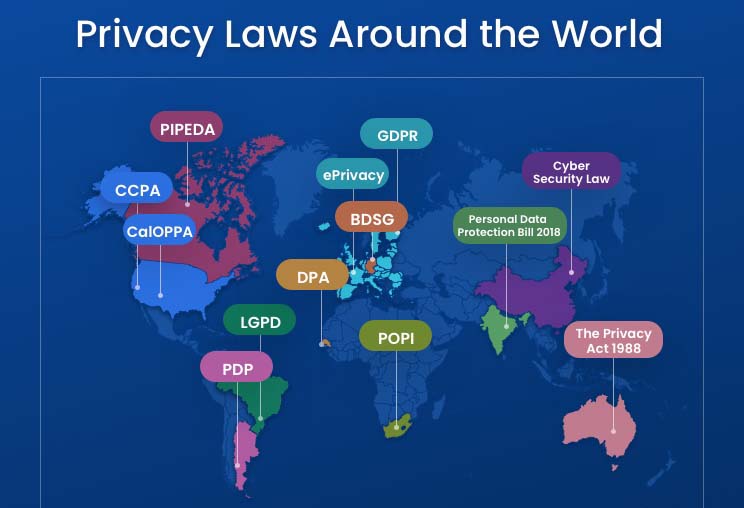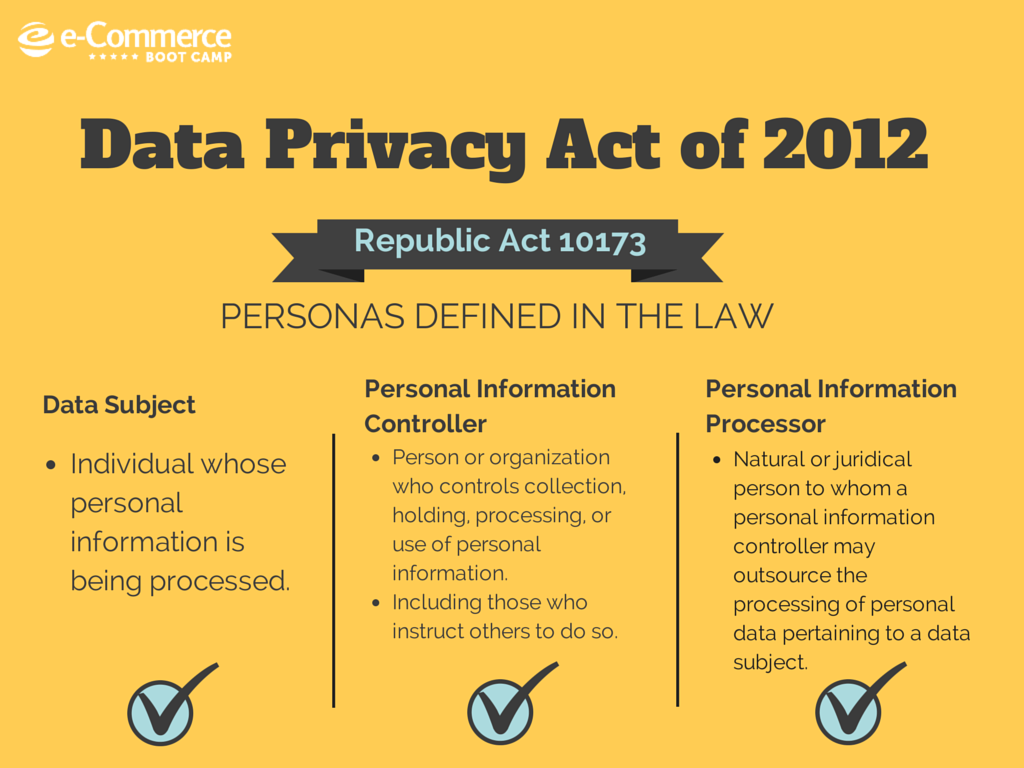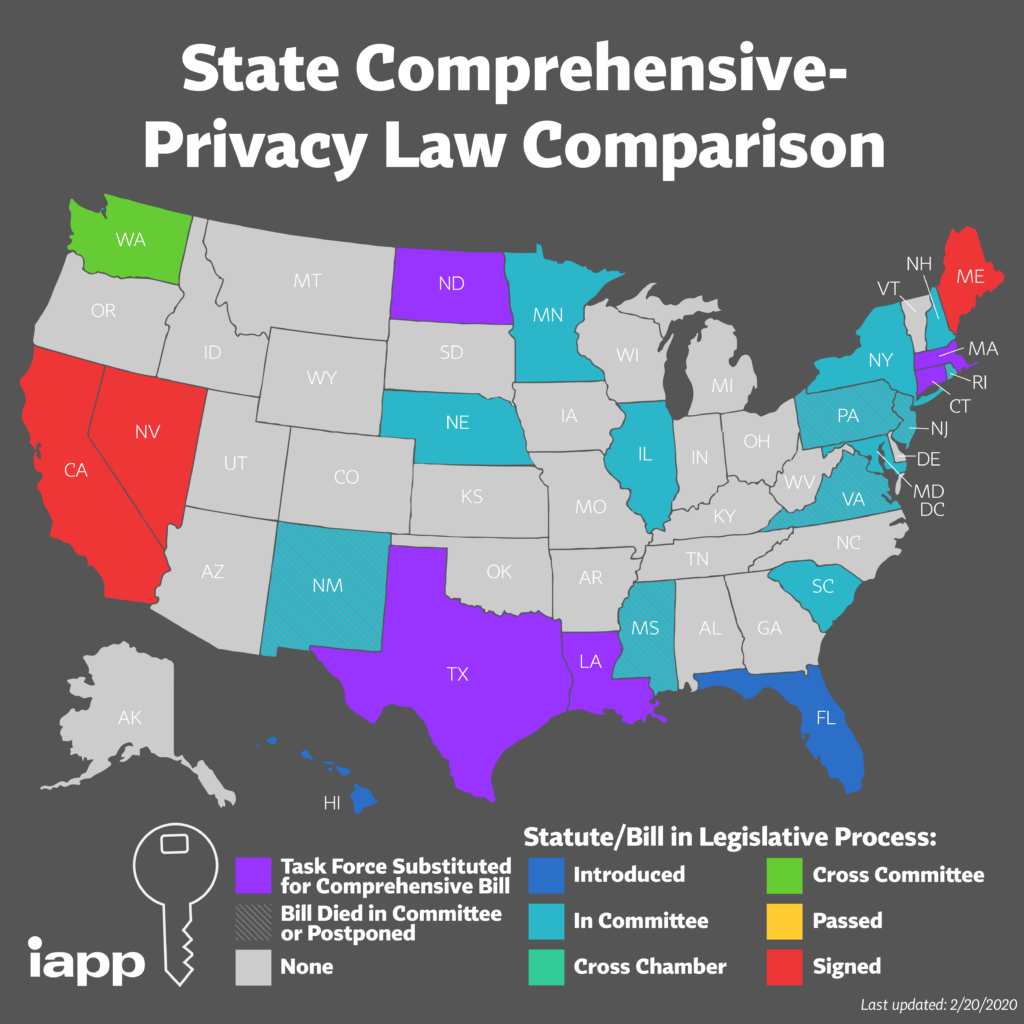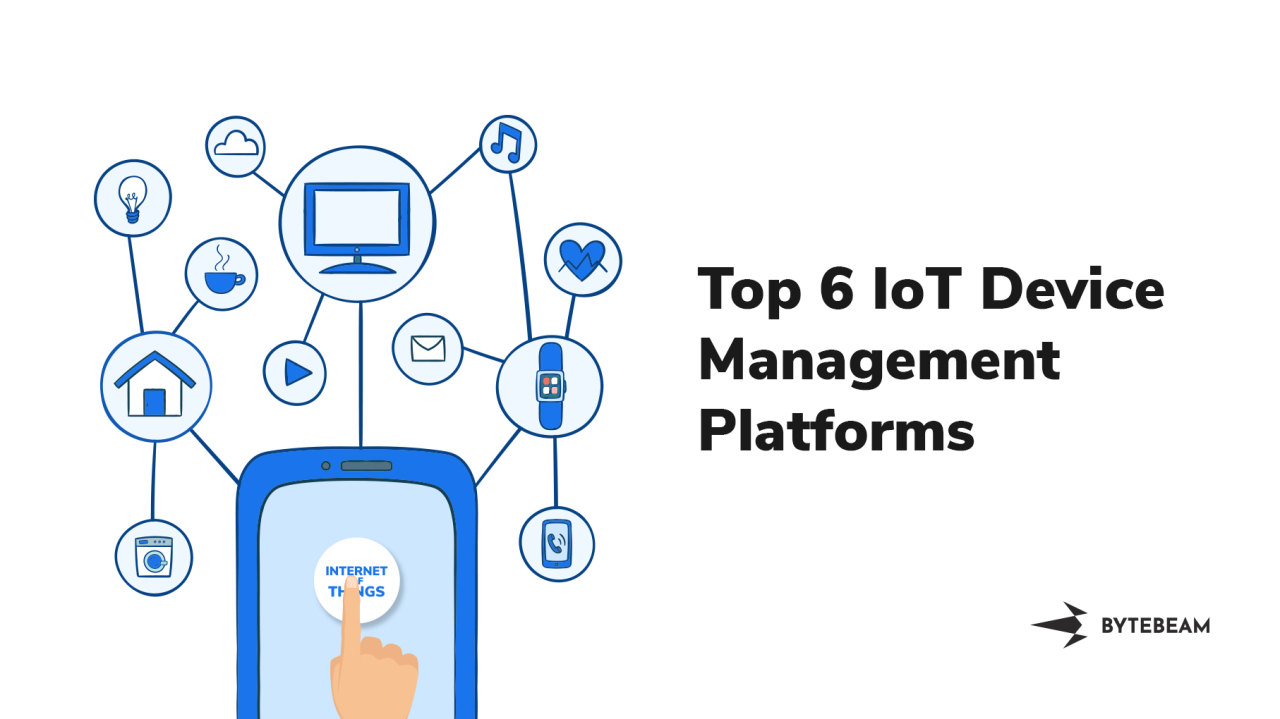Data Privacy Laws
Data privacy laws play a crucial role in protecting sensitive information in today’s digital landscape. As technology advances, the need for robust regulations to ensure data security becomes increasingly evident. Let’s explore the key aspects of data privacy laws and their impact on businesses and consumers.
Overview of Data Privacy Laws

Data privacy laws are regulations that govern the handling and protection of personal information collected by organizations. These laws aim to ensure that individuals have control over how their data is used and to prevent unauthorized access or misuse of sensitive information.
In the digital age, where vast amounts of data are collected and shared online, data privacy laws play a crucial role in safeguarding individual privacy and maintaining trust in the digital ecosystem. With the increasing frequency of data breaches and cyberattacks, the need for robust data privacy laws has become more pressing than ever.
Importance of Data Privacy Laws
- Data privacy laws help protect individuals from identity theft and fraud by setting standards for the collection, storage, and sharing of personal data.
- These laws promote transparency and accountability among organizations that handle personal information, fostering a culture of data protection and ethical data practices.
- By ensuring that individuals have control over their personal data, data privacy laws empower users to make informed decisions about how their information is used and shared.
Key Objectives of Data Privacy Laws
- Ensure the confidentiality and security of personal information to prevent unauthorized access or disclosure.
- Establish guidelines for the lawful collection, processing, and storage of personal data to protect individual privacy rights.
- Provide individuals with the right to access, correct, or delete their personal information held by organizations.
Common Data Privacy Regulations

Data privacy regulations play a crucial role in protecting individuals’ personal information and ensuring the responsible handling of data by organizations. Let’s explore some of the prominent data privacy regulations and their implications.
GDPR (General Data Protection Regulation)
The GDPR is a comprehensive data privacy regulation implemented by the European Union to safeguard the personal data of EU citizens. It sets guidelines for data collection, processing, and storage, as well as the rights of individuals regarding their data. Organizations that fail to comply with GDPR face hefty fines and reputational damage.
CCPA (California Consumer Privacy Act)
The CCPA is a state-level data privacy law in California that grants consumers more control over their personal information held by companies. It requires businesses to disclose data practices, allow consumers to opt-out of data sales, and enhance data security measures. Non-compliance with CCPA can result in penalties and legal consequences.
Global Data Privacy Laws Comparison
Data privacy laws vary significantly across different countries and regions. While GDPR is one of the most stringent regulations globally, countries like the United States have a patchwork of state-level laws like CCPA and others. Some countries, such as Japan and Brazil, have also implemented their own data protection laws. The variations in data privacy regulations can create challenges for multinational companies operating in multiple jurisdictions.
Implications of Non-Compliance
Non-compliance with data privacy regulations can have severe consequences for organizations. Apart from facing fines and legal actions, companies risk losing customer trust, damaging their reputation, and experiencing data breaches. Data privacy regulations aim to protect individuals’ rights and hold organizations accountable for their data handling practices.
Impact of Data Privacy Laws on Businesses

Data privacy laws have a significant impact on businesses across various industries. These regulations dictate how companies collect, store, and use personal data, ultimately influencing their operations and strategies. Non-compliance with data privacy laws can result in severe penalties, damage to reputation, and loss of customer trust.
Examples of Industries Most Impacted by Data Privacy Regulations
- Healthcare: Healthcare organizations handle sensitive patient data and must adhere to strict data privacy laws like HIPAA in the United States.
- Finance: Financial institutions deal with confidential financial information, requiring compliance with regulations such as GDPR in Europe and GLBA in the U.S.
- Retail: Retail companies collect customer data for marketing purposes, necessitating compliance with laws like CCPA in California.
Strategies for Businesses to Ensure Compliance with Data Privacy Laws
- Implementing robust data protection measures, such as encryption and access controls, to safeguard customer information.
- Conducting regular audits and assessments to identify and address any data privacy vulnerabilities within the organization.
- Providing employee training on data privacy best practices and ensuring a culture of privacy and security throughout the company.
- Engaging legal counsel or data privacy experts to stay updated on changing regulations and ensure compliance at all times.
Consumer Rights and Data Privacy

Data privacy laws play a crucial role in granting consumers certain rights to protect their personal information in the digital age. These laws empower individuals to have control over how their data is collected, used, and shared by organizations.
Rights Granted to Consumers
- Right to access and request a copy of their personal data held by organizations.
- Right to request corrections or updates to inaccurate or incomplete information.
- Right to request deletion of personal data under certain circumstances.
- Right to be informed about how their data is being used and shared.
- Right to opt-out of certain data processing activities, such as marketing communications.
Empowerment through Data Privacy Laws
Data privacy laws give individuals the power to make informed choices about their personal information and ensure that their privacy is respected. By providing consumers with rights over their data, these laws enable them to safeguard their sensitive information from misuse or unauthorized access.
Examples of Breaches
- In 2018, the Facebook-Cambridge Analytica scandal involved the unauthorized access of personal data of millions of Facebook users for political profiling purposes.
- Equifax, one of the largest credit reporting agencies, experienced a data breach in 2017 that exposed the sensitive information of over 147 million consumers.
- Yahoo suffered a massive data breach in 2013 and 2014, affecting billions of user accounts and leading to compromised personal data such as names, email addresses, and passwords.
Data Protection Measures: Data Privacy Laws

In today’s digital age, safeguarding sensitive information has become more crucial than ever. Organizations must implement robust data protection measures to ensure the privacy and security of their data.
Encryption techniques play a vital role in data protection by encoding information in such a way that only authorized parties can access it. By encrypting data, organizations can prevent unauthorized access and maintain the confidentiality of sensitive information.
Role of Data Anonymization
Data anonymization involves removing personally identifiable information from datasets, making it impossible to identify individuals. This technique is essential for ensuring data privacy compliance, as it helps organizations protect the privacy of their users while still utilizing data for analysis and research purposes.
Frequently Asked Questions
How do data privacy laws impact businesses?
Data privacy laws can affect businesses by requiring them to implement strict data protection measures, ensure compliance with regulations, and potentially face penalties for non-compliance.
What are the key objectives of data privacy laws?
The main objectives of data privacy laws include protecting individuals’ personal information, regulating the collection and use of data, and preventing unauthorized access or data breaches.
What are some common data privacy regulations that businesses need to be aware of?
Businesses should be familiar with regulations such as GDPR (General Data Protection Regulation) in Europe and CCPA (California Consumer Privacy Act) in the United States, which Artikel requirements for data handling and privacy.






